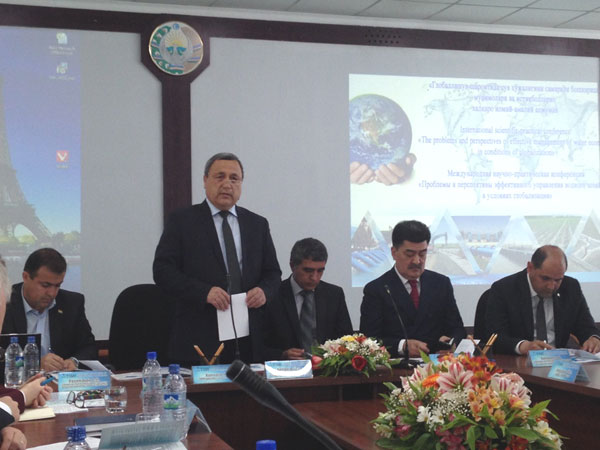The Central Asian International Scientific-Practical Conference
“The 25 years of Water Cooperation in Central Asia:
Achievements, Lessons Learnt and Future Outlook”
23-24 November 2017, Tashkent, Uzbekistan
International scientific-practical conference “Challenges and Prospects of Effective Water Management Against the Backdrop of Globalization”
April 11-12, 2017, Tashkent
The International Scientific-Practical Conference “Challenges and prospects of effective water management against the backdrop of globalization” was held at the Tashkent Institute of Irrigation and Land Reclamation.
The Conference brought together the representatives of agricultural and water ministries from Uzbekistan, Kazakhstan, Turkmenistan, ministry of energy and water from Tajikistan, FAO, International Fund for the Aral Sea Saving, German society for International Cooperation, Embassy of Switzerland in Uzbekistan, international organizations, the heads of Uzbek water inspection, Chamber of auditors of Uzbekistan, National committee of Uzbekistan for large dams, and researchers

In their addresses, the water leaders from Kazakhstan, Tajikistan, Turkmenistan, and Uzbekistan highlighted the key role of transboundary water cooperation in ensuring water, food, energy, and environmental sustainability in the region. The speakers emphasized also importance of the International Fund for the Aral Sea Saving (IFAS) for facilitating of water cooperation on the basis of mutual respect and in line with international law. In his presentation, SIC ICWC Director and ICWC Honorary Member Prof. V.A.Dukhovniy, focused on the two key areas for the region to survive under the growing water shortage. Those are water conservation and enhanced cooperation among the region’s countries.
The participants also discussed the issues related to efficient water and land use, including in the water-stressed and transboundary territories. Particular attention was paid to adoption of the up-to-date water saving technologies and to upbringing of new generation of water managers.
